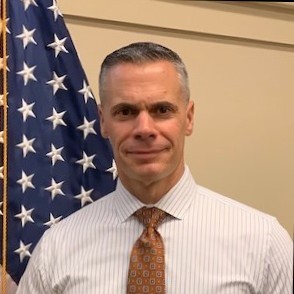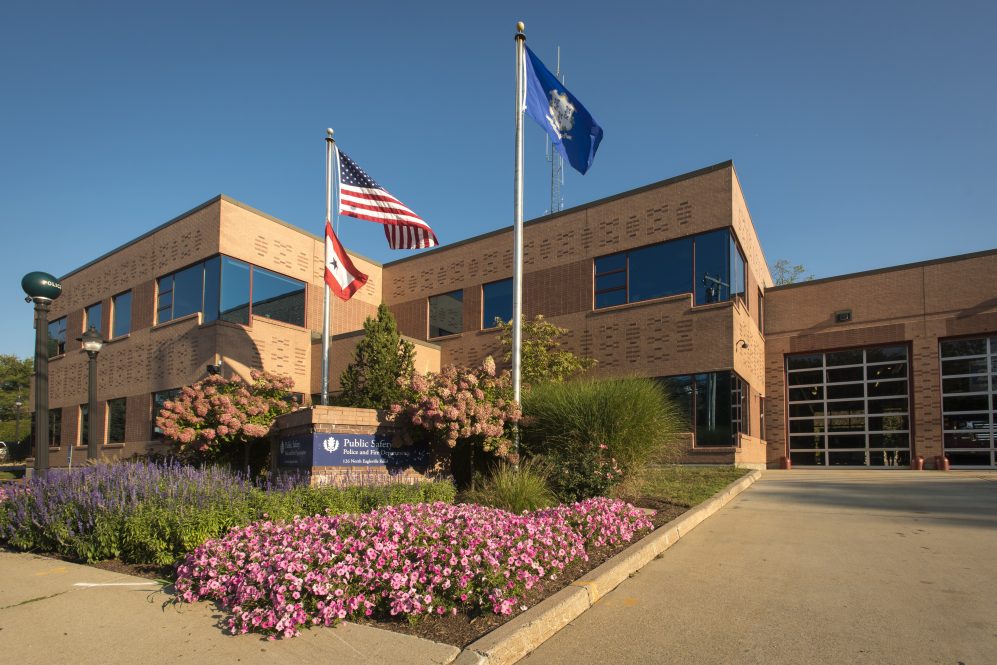Gene Labonte, associate vice president and chief of police at Salem State University in Massachusetts, has been selected as the next UConn Chief of Police, Associate Vice President of Public Safety Hans Rhynhart announced Tuesday.
Labonte, who brings more than three decades of law enforcement experience, is currently responsible for planning, development, and operational control of the 30-member, full-time police department at Salem State, which is part of the commonwealth’s state university system.

“It is an honor to have been selected to serve as chief of police at the University of Connecticut,” says Labonte. “I’m thrilled to be able to join the UConn community and look forward to working closely with the outstanding individuals within the Division of University Safety, as well as the students, faculty and staff on all of UConn’s campuses across the state. I am committed to partnering with every constituency to ensure that UConn remains a safe and inclusive environment to live, learn and work.”
Labonte’s activities and accomplishments at Salem State include:
- Initiated important accreditation processes involving a comprehensive updating or creating department policies.
- Established a variety of proactive programs designed to enhance police community relations and foster trust between police and community members, including a community engagement/comfort dog, LBGTQ+ liaison officer, police community engagement team.
- Implemented and operationalized body-worn cameras for officers.
- Ensured overall personal and physical security for large events including athletic competitions, commencement exercises, dignitary visits, concerts and lectures requiring personal screening, physical infrastructure security and evacuation planning.
- Served as emergency management director responsible for comprehensive emergency operations ensuring preparation for a wide array of emergencies including active shooters and natural disasters.
- Directed the institution’s COVID-19 Pandemic Response Team; developed the university’s pandemic emergency response plan and coordinated with internal and external partners relative to operational strategies and response.
- Served as the primary member of the university threat assessment team responsible for presenting cases and recommending responses regarding persons of concern; developed an online threat assessment reporting portal to ensure seamless and efficient reporting of concerns.
- Developed the university’s first Enterprise Risk Management program and implemented a standardized process of risk assessment and strategic risk mitigation.
- Developed the university’s first Continuity of Operations Plan (COOP) and Comprehensive Integrated Emergency Management Plan.
“The UConn Police Department and the university community as a whole will benefit from Chief Labonte’s extensive career in law enforcement, outstanding experience in overseeing public safety in a university community, and his progressive, informed, and sophisticated approach to policing in today’s environment,” Rhynhart says.
Labonte began his career in 1990 with the Connecticut State Police, where he rose to be the commanding officer for three separate troops in the state, managing all operational and administrative aspects of the command including investigations, budget, personnel matters, labor relations and facility maintenance. Combined, the three provided full service primary law enforcement and cooperative policing services to diverse rural and urban communities in eastern Connecticut.
One of the three was Troop C located in Tolland, Connecticut. There, he was able to work regularly and closely with UConn’s Division of University Safety, supporting UConn Police in the management of significant events and issues on the Storrs campus.
He also served as the commanding officer for the Eastern District Criminal Investigative Section, where he managed daily operational activities of the district Major Crime Squad and four criminal investigative units providing specialized investigation support to four state police troops and 52 cities and towns in eastern Connecticut. There, he implemented a Community Service Officer/Sexual Assault Investigator program utilizing specially trained investigators to mitigate victim impact and increase investigative success and conviction rates through use of multi-disciplinary teams.
He went on to lead CSP’s Selections and Investigative Support Section as a captain; was the commanding officer of the Bureau of Criminal Investigations as a major; and finished his CSP career in 2012 as lieutenant colonel, the second highest ranking officer in the CSP, overseeing the Office of Administrative Services where he was a key member of state Department of Public Safety’s Fiscal Planning and Budget Formulation Team responsible for partial administration of a $170 million budget.
He began as the chief of police and head of public safety at Salem State in 2012.
He earned his undergraduate degree from Salem State in 1989 and went on to earn a master’s degree in organizational management from Eastern Connecticut State University in 2007. He is a 2003 graduate of the FBI’s National Academy.



